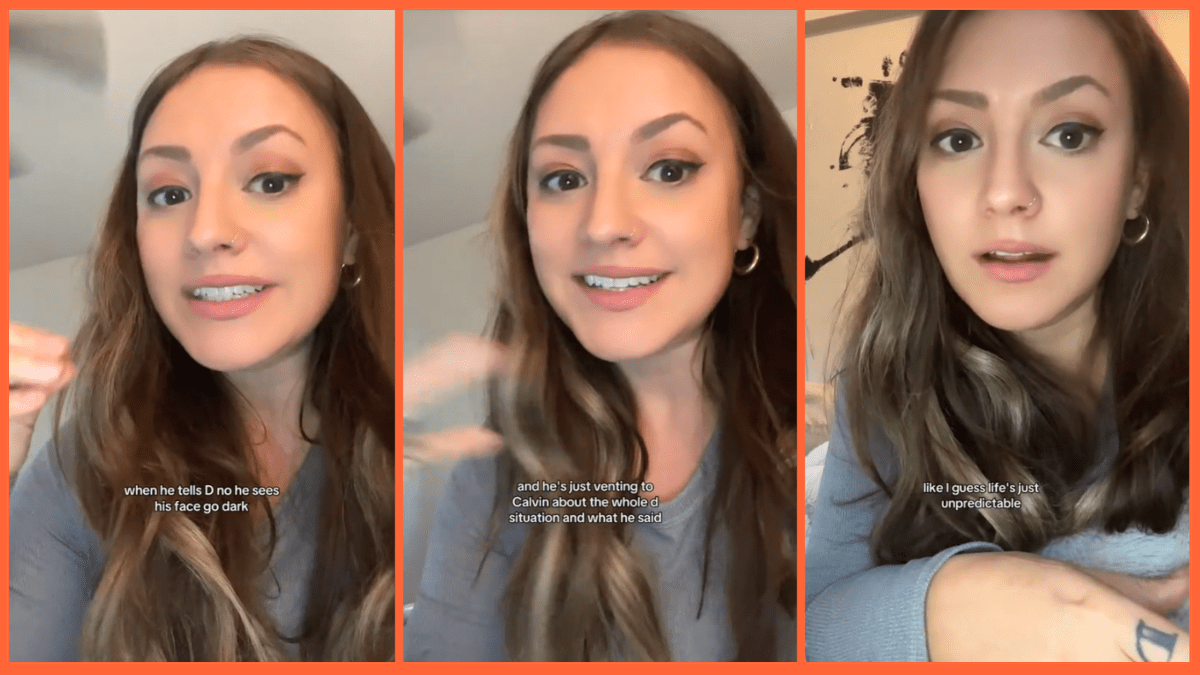The act of taking a life is something we should never look upon lightly. That’s stating the obvious, but what if someone goes to unthinkable lengths to protect someone they care about? An allegedly true story shared on TikTok may leave some of us — including the storyteller, @ashleeinc — feeling conflicted.
Judging from the comments, after listening to the nearly seven-minute-long, second-hand account, most seem not to have a hard time picking whom to root for, and – spoiler alert – it’s not the person who dies at the end.
This Hollywood-worthy chain of events took place in the ’90s, but it still haunts Mike, who sent Ashlee a private DM sharing his unbelievable tale.
Mike may be considered the main character in this story – since it’s his perspective we’re getting – but he’s not the one who takes a radical course of action. He’s simply caught between two of his former employees turned combatants, who both acted as if they had nothing to lose.
A ride or die through and through
Have you ever treated someone with nothing but generosity, but when they keep escalating their demands, and you finally tell them “no,” they retaliate as if you never helped them in the first place? This was the conundrum Mike, a 30-something-old restaurant manager, found himself in with D, his younger employee and an ex-convict. Mike angered D by setting some proper boundaries, refusing to co-sign on an apartment D wanted to rent. For D, it wasn’t enough to quit his job and move on with his life. He had to get back at Mike.
Calvin, like D, was an ex-convict, but he’d been working with Mike at this restaurant for much longer, close to seven years. Mike and Calvin were not merely coworkers, they were buddies. So much so that Calvin eventually became a sort of “uncle” to Mike’s children. So, when D escalated his deranged revenge plot by attacking Mike’s eldest son after soccer practice, Calvin risked going back to jail to put an end to D’s vicious plans.
It came to pass that D died suddenly, in a car accident. And although Calvin never outright admitted to anything, he ominously told Mike, “Maybe someone gave him a little push.”
“Those ex-felons that turn their life around [are] some of the most loyal guys they will easily dip their foot back in that life to help a friend,” commented one netizen. “I believe everyone needs a friend like Calvin,” remarked another, echoing the sentiment of many others.
My reasoning for this wave of support for Calvin, who may or may not have killed another person, has to do with listeners’ emotional response to this wild rollercoaster ride of a story; belief and emotion are deeply intertwined, and this narrative, told expertly by TikToker Ashlee, evokes a few different emotional reactions.
First, we understand that Mike is a nice guy and generous restaurant manager who did not deserve to be mistreated, much less stabbed in the back. We naturally tend to respect bosses who genuinely care about the people working under them. Then, we have the vengeful and ungrateful employee, D, for whom we may feel righteous anger, because we humans usually abhor this level of betrayal and petty, unjustified retaliation. Finally, there’s Calvin, who evidently does something no one ever should but, by doing so, brings a sense of justice that appeases the outrage we felt at D.
Furthermore, Calvin acted in defense of a friend and his teenage son, so we may see his underlying motivation as being honorable even if his actions, from a moral imperative perspective, aren’t. Therefore, people will be more lenient and understanding towards Calvin, who committed an objectively more extreme act, than towards D, who ultimately behaved like a malignant narcissist.
Did D deserve to die? I’d say no, emphatically. Being charged and sentenced to sufficient jail time to ponder on his misdeeds, being ordered to pay Mike and his family monetary compensation for material, physical, and emotional damages, and a perpetual restraining order might’ve been enough to put the matter to rest.
But, undeniably, it is also true that D needed to be stopped, as he was escalating things to dangerous degrees and trying to punish Mike by hurting people he loves – his son, in this case – which is inexcusable. So, at the end of the day, even if Calvin decided to disregard more ethical solutions in favor of a definite conclusion to the problem, it is understandably hard to perceive him with the usual coldness we would an unreasonable, callous killer. Allegedly.
